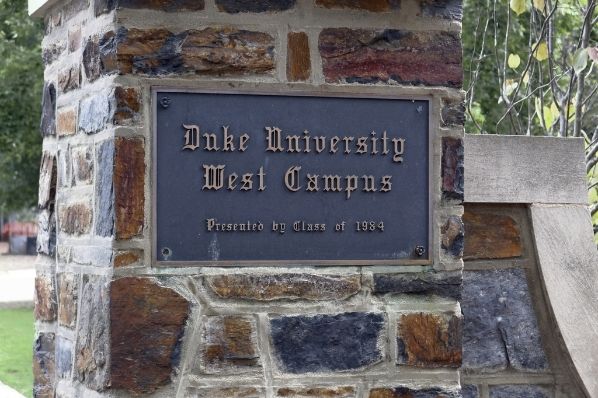There are journalists out there who actually believe that notorious cult leader Charles Manson didn't really order the murders of Sharon Tate and five other people in 1969. And there are journalists out there who actually believe that the Duke lacrosse case represented a likely miscarriage of justice–but in the opposite direction of what everyone else now thinks.
Sunday, March 13, marked the tenth anniversary of the off-campus party near Duke University that resulted in three white members of the Duke lacrosse team being falsely charged with forcible rape of an African-American stripper hired to entertain the party—-and also thoroughly vilified by a liberal press and much of the faculty and adminstration at Duke itself, who obviously were eager to heave a tripod of charges of racism, misogyny, and class punching down at the three young men.
Later the three were completely exonerated by the North Carolina attorney general when it appeared that the stripper, Crystal Mangum, had a history of erratic behavior and never managed to never to tell the same lurid story about the alleged rape twice. And and that Mike Nifong, the district attorney who insisted on pressing charges against the three lacrosse players despite the mountain of exculpatory evidence (including DNA evidence) that inevitably piled up, seemed to be in the game mostly to win support from the local black community in his upcoming bid for reelection Nifong was disbarred. Mangum went to prison for the second-degree murder of her boyfriend in 2010.
So on Sunday night ESPN aired a documentary, "Fantastic Lies," about the Duke debacle. Variety gave the documentary a rave review:
In her detailed re-creation of what happened, director Marina Zenovich (“Roman Polanski: Wanted and Desired”) explores the “Molotov cocktail” of societal factors that made the story a media sensation, as well as a searing example of journalistic malpractice and prosecutorial abuse.
But Crystal Mangum and Mike Nifong continue to have their diehard fans. Here's one: William D. Boylan, writing in Vanity Fair:
But the problem with Fantastic Lies isn’t its opportunistic programming as much as its uneven portrayal of the events in question. The Duke lacrosse case, after all, was remarkable for, among other things, its enormous complexity. This was the main point I tried to convey in The Price of Silence, my book on the scandal, which came out in 2014. (I should mention—not with any sort of Dickensian pretensions—that the final version clocked in at 614 pages for a reason. The innumerable subtleties of the story demanded it.)….
Fantastic Lies presents the narrative that the parents of the indicted players and their defense attorneys have been busily trying to preserve in amber for years: that the players were falsely accused, and that the Durham police, aided and abetted by Nifong, the rape nurse, and the media created an epic conflagration. Instead of grappling with why there never was a trial and how the North Carolina State Bar was used to subvert justice, the film once again spews the defense version that justice was served, even though it was not, and that no amount of money, not even $20 million, could ever compensate the three players for what Mangum and Nifong did to them.
Boylan seems to have a problem with the fact the lacrosse players' parents hired lawyers to defend them against felony charges, and that the North Carolina bar decided that Nifong had acted grossly unprofessionally.
Well, maybe. But hell–there are journalists out there who maintain that Charles Manson is innocent, too.


